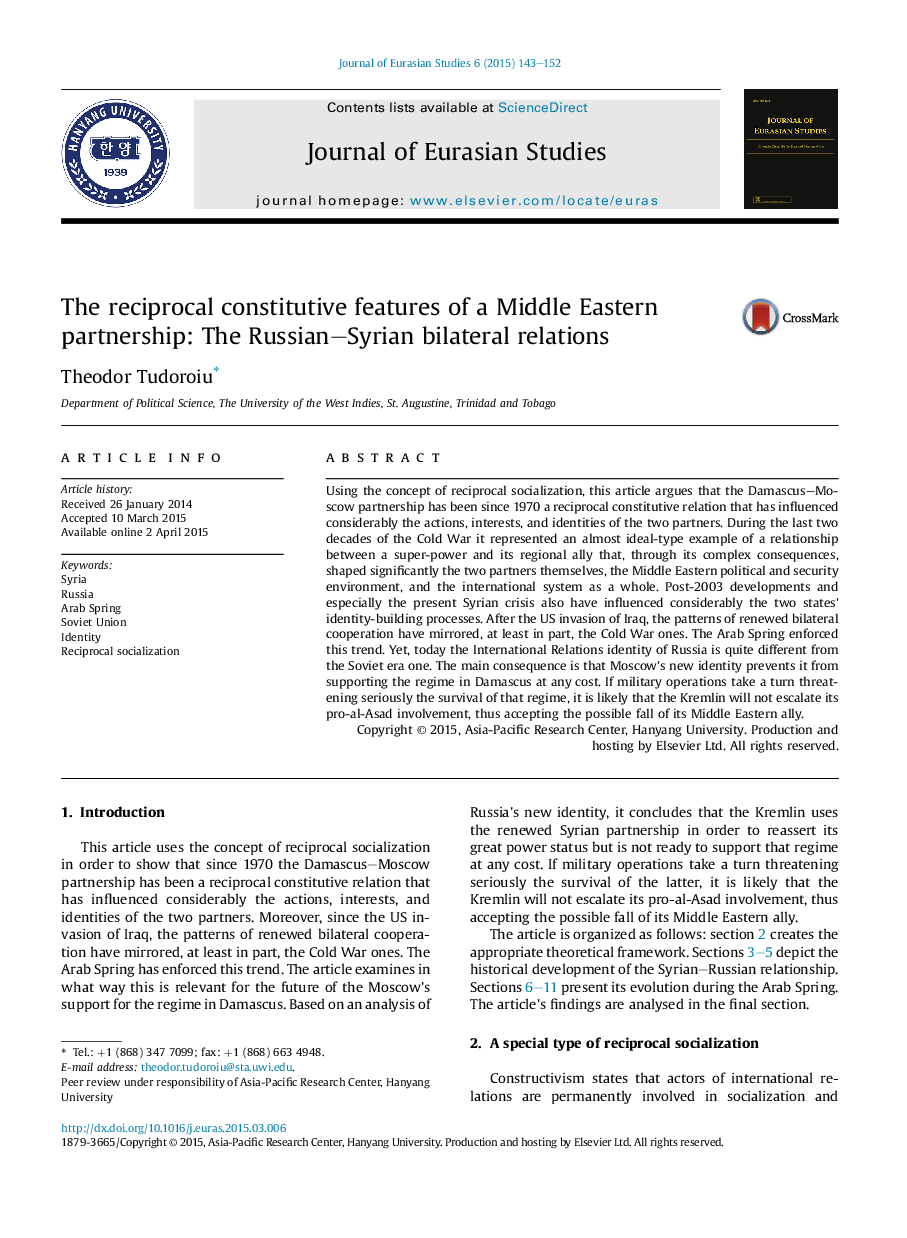| Article ID | Journal | Published Year | Pages | File Type |
|---|---|---|---|---|
| 1127207 | Journal of Eurasian Studies | 2015 | 10 Pages |
Using the concept of reciprocal socialization, this article argues that the Damascus–Moscow partnership has been since 1970 a reciprocal constitutive relation that has influenced considerably the actions, interests, and identities of the two partners. During the last two decades of the Cold War it represented an almost ideal-type example of a relationship between a super-power and its regional ally that, through its complex consequences, shaped significantly the two partners themselves, the Middle Eastern political and security environment, and the international system as a whole. Post-2003 developments and especially the present Syrian crisis also have influenced considerably the two states' identity-building processes. After the US invasion of Iraq, the patterns of renewed bilateral cooperation have mirrored, at least in part, the Cold War ones. The Arab Spring enforced this trend. Yet, today the International Relations identity of Russia is quite different from the Soviet era one. The main consequence is that Moscow's new identity prevents it from supporting the regime in Damascus at any cost. If military operations take a turn threatening seriously the survival of that regime, it is likely that the Kremlin will not escalate its pro-al-Asad involvement, thus accepting the possible fall of its Middle Eastern ally.
